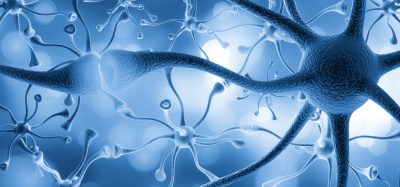New drug could stop Parkinson’s Disease
Posted: 20 July 2016 | Niamh Louise Marriott, Digital Content Producer | 1 comment
Scientists discovered an interaction in neurons that contributes to Parkinson’s disease, showing how drugs now under development could block the process…


Using a robust model for Parkinson’s disease, researchers at the University of Alabama have discovered an interaction in neurons that contributes to Parkinson’s disease, showing how drugs now under development could block the process.
Researchers have found that an interaction between a mutant gene and alpha synuclein in neurons leads to hallmark pathologies seen in Parkinson’s disease, findings that may lead to new mechanisms and targets for neuroprotection.
The most common genetic cause of Parkinson’s disease – a mutant LRRK2 kinase enzyme – contributes to the formation of inclusions in neurons, resembling one of the hallmark pathologies seen in Parkinson’s disease.
Drug may slow progression of Parkinson’s disease-associated pathology
These inclusions are made up of aggregated alpha synuclein protein, which, this new research shows, can be prevented from forming by using two LRRK2 kinase inhibitor drugs now being developed for clinical use.


This interaction between mutant LRRK2 kinase and alpha-synuclein could uncover new mechanisms and targets for neuroprotection. Through novel therapeutic compounds targeting this process by inhibiting LRRK2 kinase activity, scientists may slow progression of Parkinson’s disease-associated pathology.
“This data give us hope for the clinical potential of LRRK2 kinase inhibitors as effective therapies for Parkinson’s disease,” said Laura Volpicelli-Daley, Ph.D, a professor in the Department of Neurology. Leading the research with her, Andrew West Ph.D., Center for Neurodegeneration and Experimental Therapeutics, said,
“The LRRK2 kinase inhibitors may inhibit the spread of pathologic alpha-synuclein, not only in patients with LRRK2 mutations, but in all Parkinson’s disease patients. Future studies to validate the safety and efficacy of the LRRK2 inhibitors will be necessary before testing the inhibitors in human clinical trials.”
Besides Parkinson’s disease, alpha-synuclein also plays a central role in development of dementia with Lewy bodies and multiple system atrophy, and it is associated with Alzheimer’s disease and other neurodegenerative disorders.
Related topics
kinase enzyme, LRRK2, Neuroprotection
Related conditions
Parkinson's disease








Good luck to further studies!!!!